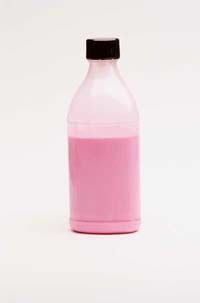Montezuma's revenge, Delhi belly, Turkey trot, and Casablanca crud. Such colorful names give you a good idea of the misery to expect from traveler's diarrhea, a disease that can spoil an expensive and eagerly anticipated vacation.
It was once believed to be caused by a change in water, indulgence in spicy foods, or too much sun. Not so anymore. Researchers have found specific bacteria to blame. These bugs take up residence in the upper intestine and produce toxins that cause fluids and electrolytes (minerals like sodium and potassium that help regulate many body functions) to be secreted in a watery stool.
Advertisement
If you visit nearly any developing country in Latin America, Africa, or Asia, you've got a 30 to 50 percent chance of spending a few days in close contact with your bathroom. Less risky are places such as southern Spain and Italy, Greece, Turkey, and Israel, where some 10 to 20 percent of tourists come down with traveler's diarrhea. Posing the lowest risk are Canada and northern Europe.
Your actions, however, can help influence that risk. If you really want to try food from the local street vendor or insist on drinking tap water, you're increasing your chances of coming down with traveler's diarrhea.
If you do get sick, it will probably last for two to four days, although some 10 percent of cases can last for more than a week. And you may also experience -- as if the diarrhea weren't enough -- abdominal pain, cramps, gas, nausea, fatigue, loss of appetite, headache, vomiting, fever, and bloody stools.
Most common is watery diarrhea, sometimes accompanied by vomiting and a fever under 101 degrees Fahrenheit. If you actually get bacillary dysentery (caused by the Shigella bacteria), you'll have a fever over 101 degrees Fahrenheit, much more abdominal pain and cramping, and, often, blood in your stools.
See the next page for prevention options and home remedies that can help save your trip.
For more information about traveler's diarrhea and how to prevent it, try the following links:
- To see all of our home remedies and the conditions they treat, go to our main Home Remedies page.
- On par with knowing about diarrhea, you should also study up on Home Remedies for Food Poisoning.
- Diarreah can find you anywhere, not just traveling, so read about Home Remedies for Diarrhea.
- Though milder than diarrhea, you should also familiarize yourself with Home Remedies for Upset Stomach.
- Nausea has many causes as well, both near and far, so check out Home Remedies for Nausea.
This information is solely for informational purposes. IT IS NOT INTENDED TO PROVIDE MEDICAL ADVICE. Neither the Editors of Consumer Guide (R), Publications International, Ltd., the author nor publisher take responsibility for any possible consequences from any treatment, procedure, exercise, dietary modification, action or application of medication which results from reading or following the information contained in this information. The publication of this information does not constitute the practice of medicine, and this information does not replace the advice of your physician or other health care provider. Before undertaking any course of treatment, the reader must seek the advice of their physician or other health care provider.
Advertisement


